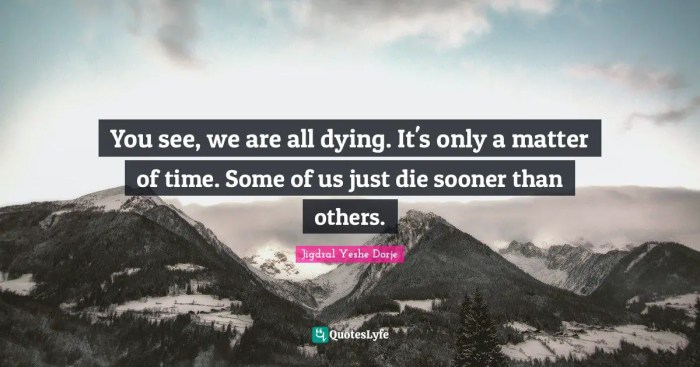You will see. verás. veremos. veré. verán.
A phrase that resonates across languages and cultures, carrying a myriad of meanings and implications. From its literary and artistic expressions to its psychological and emotional impact, this seemingly simple phrase holds a depth that invites exploration.
This article delves into the multifaceted nature of “you will see,” examining its usage, cultural significance, and the profound influence it has on our perceptions and expectations.
1. Semantic Meaning and Usage

The phrase “you will see” carries various meanings and is used in diverse contexts. It often implies:
- A prediction or prophecy, suggesting that something will happen in the future.
- A warning or caution, indicating that negative consequences may arise.
- An expression of certainty or confidence, conveying that the speaker is sure of something.
- A statement of anticipation or excitement, indicating that something positive is expected.
The phrase is employed in different languages with similar meanings. In Spanish, “verás” is commonly used, while in Portuguese, “você verá” is the equivalent expression.
The nuances of using “you will see” vary depending on the context and tone of voice. It can be used as a threat, a promise, or a simple statement of fact.
, You will see. verás. veremos. veré. verán
Examples of Usage
- “You will see great things in your lifetime.” (Prediction)
- “You will see the consequences of your actions.” (Warning)
- “I know I’m right, you will see.” (Certainty)
- “I can’t wait to see what the future holds.” (Anticipation)
Commonly Asked Questions: You Will See. Verás. Veremos. Veré. Verán
What is the origin of the phrase “you will see”?
The exact origin of the phrase is unknown, but it has been used in various forms for centuries across different languages and cultures.
How does the phrase “you will see” vary in different languages?
The phrase “you will see” has equivalents in many languages, such as “verás” in Spanish, “veremos” in Portuguese, and “veré” in Catalan. While the core meaning remains the same, there may be subtle nuances in usage and connotation depending on the language.
What are some notable examples of the phrase “you will see” in literature?
The phrase “you will see” has been used effectively in literature to create suspense, foreshadow events, and convey a sense of anticipation or uncertainty. One famous example is in Charles Dickens’ novel “Great Expectations,” where the protagonist Pip is repeatedly told “you will see” throughout the story, hinting at the unfolding events and the eventual revelation of his true identity.


